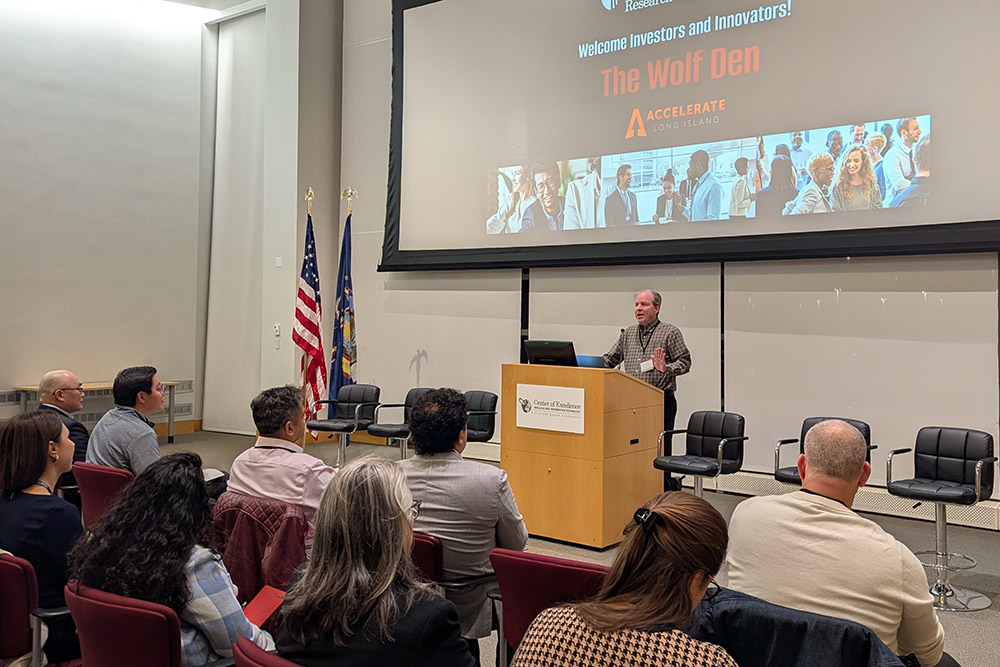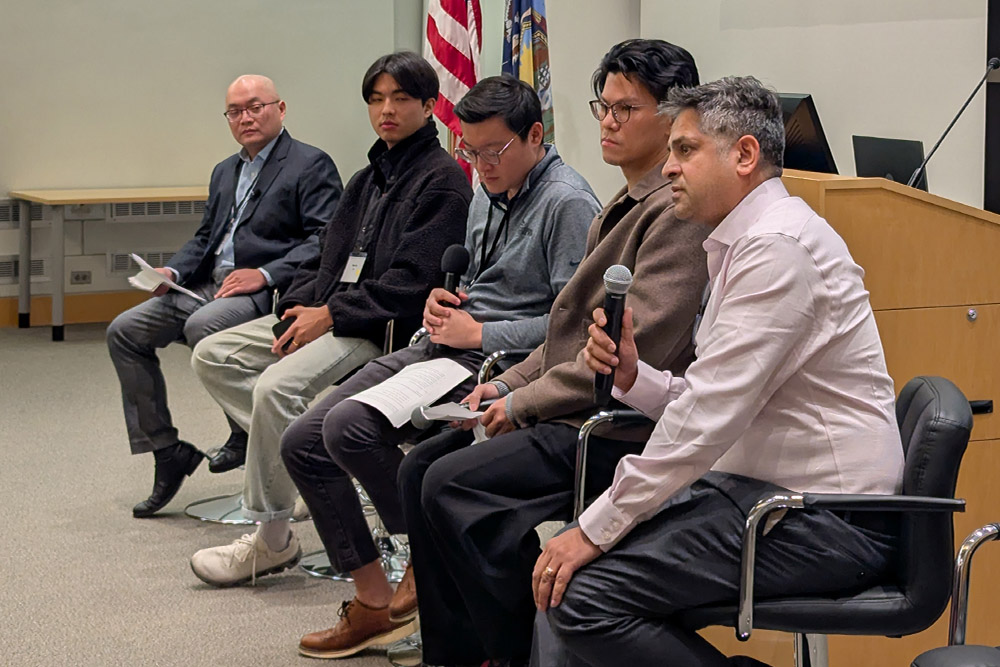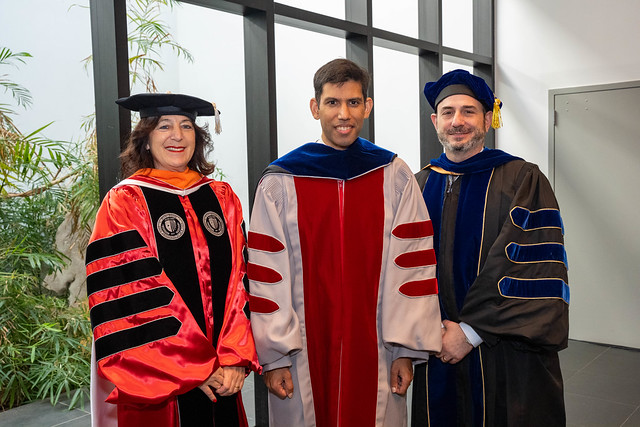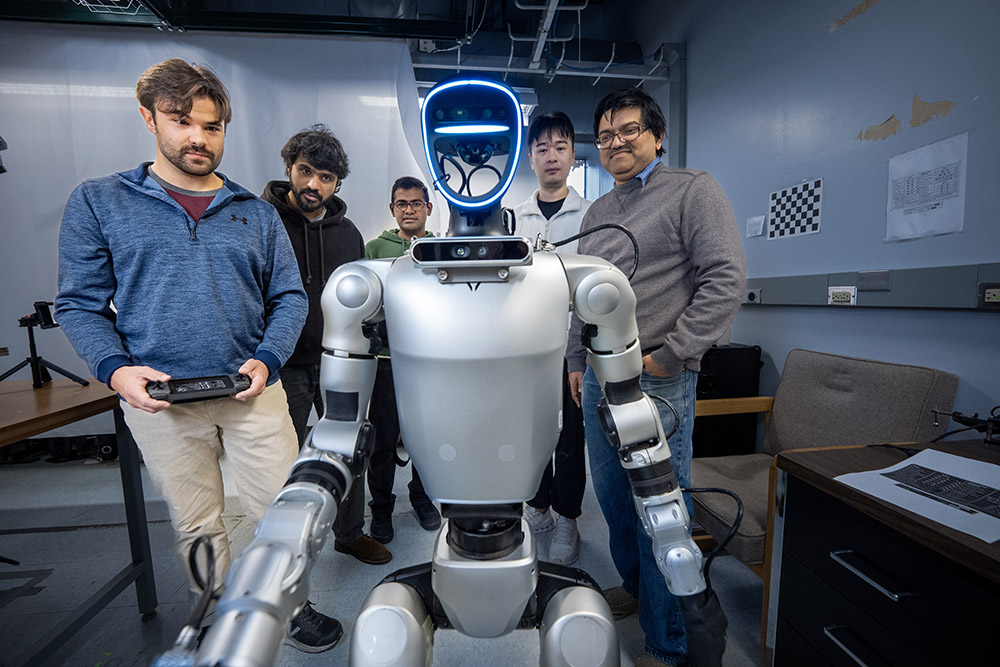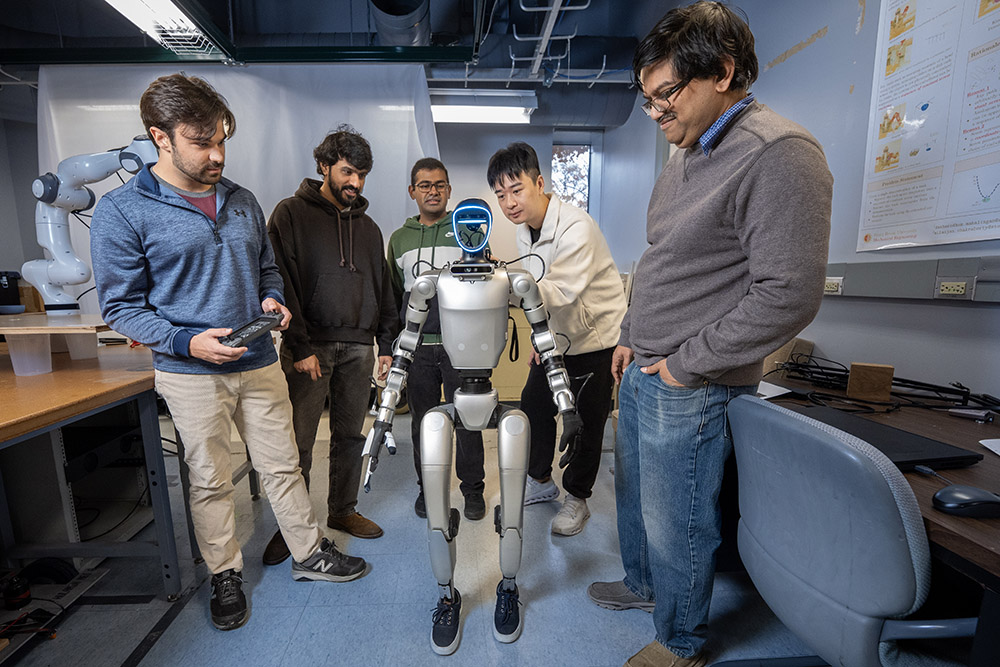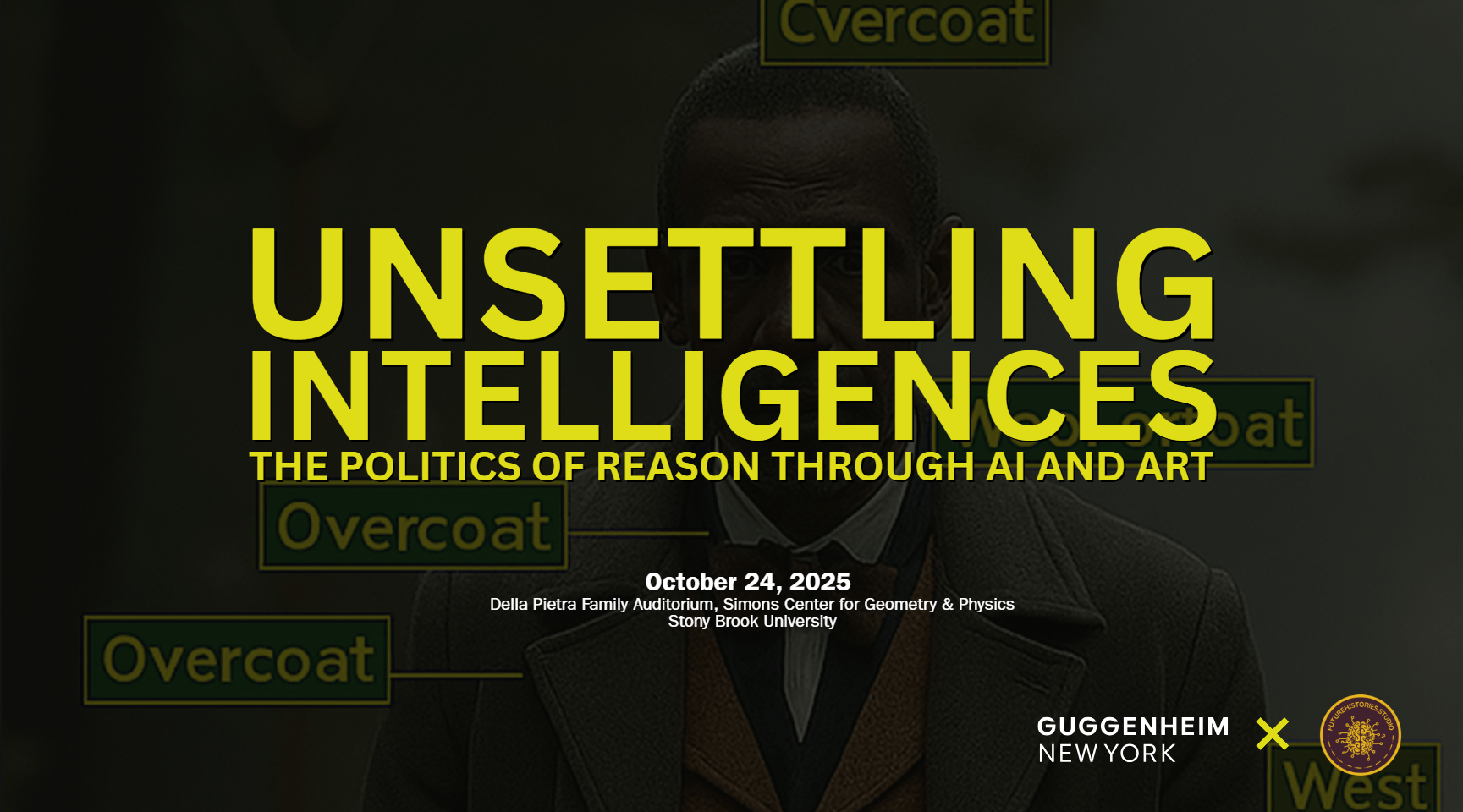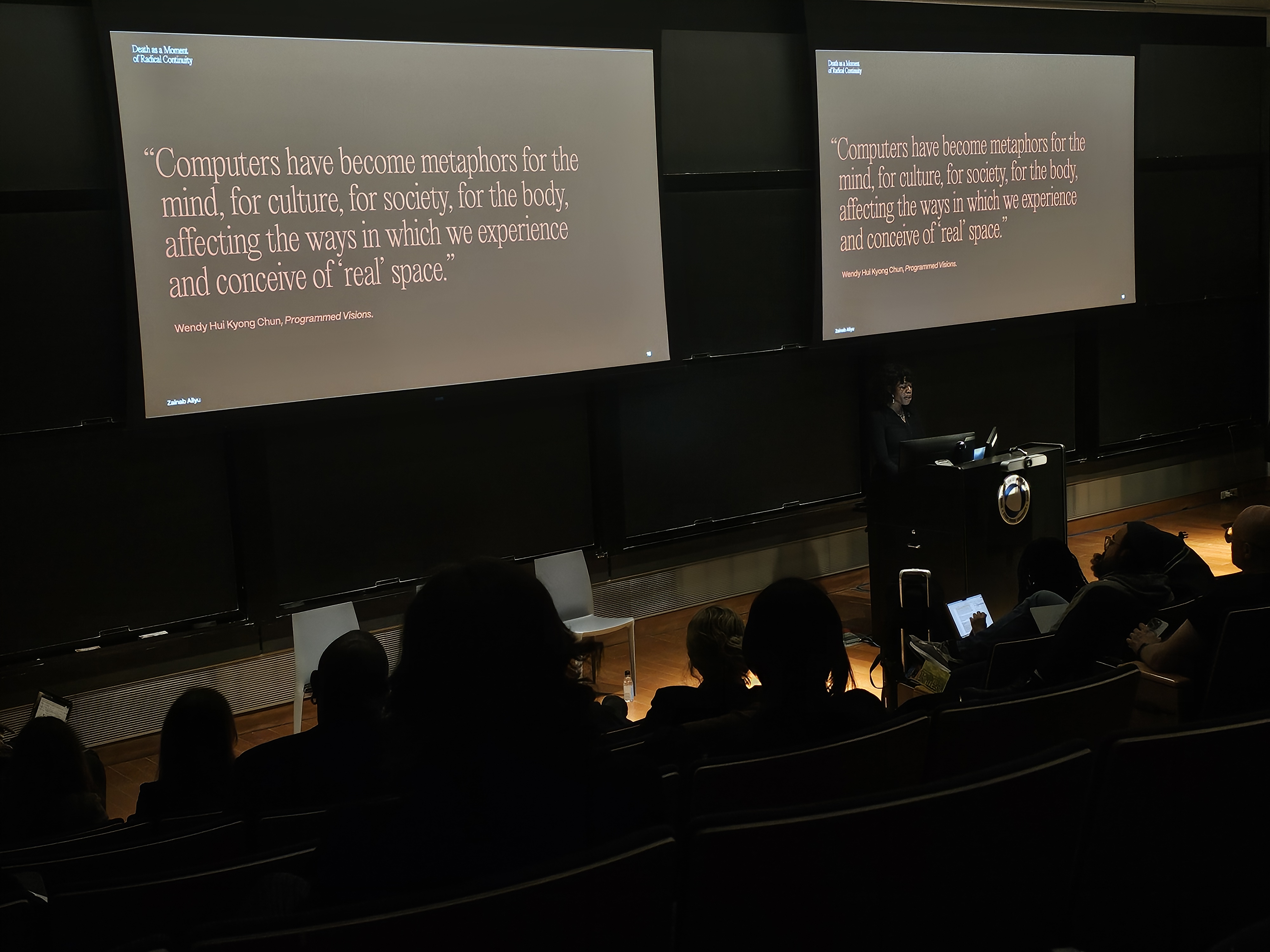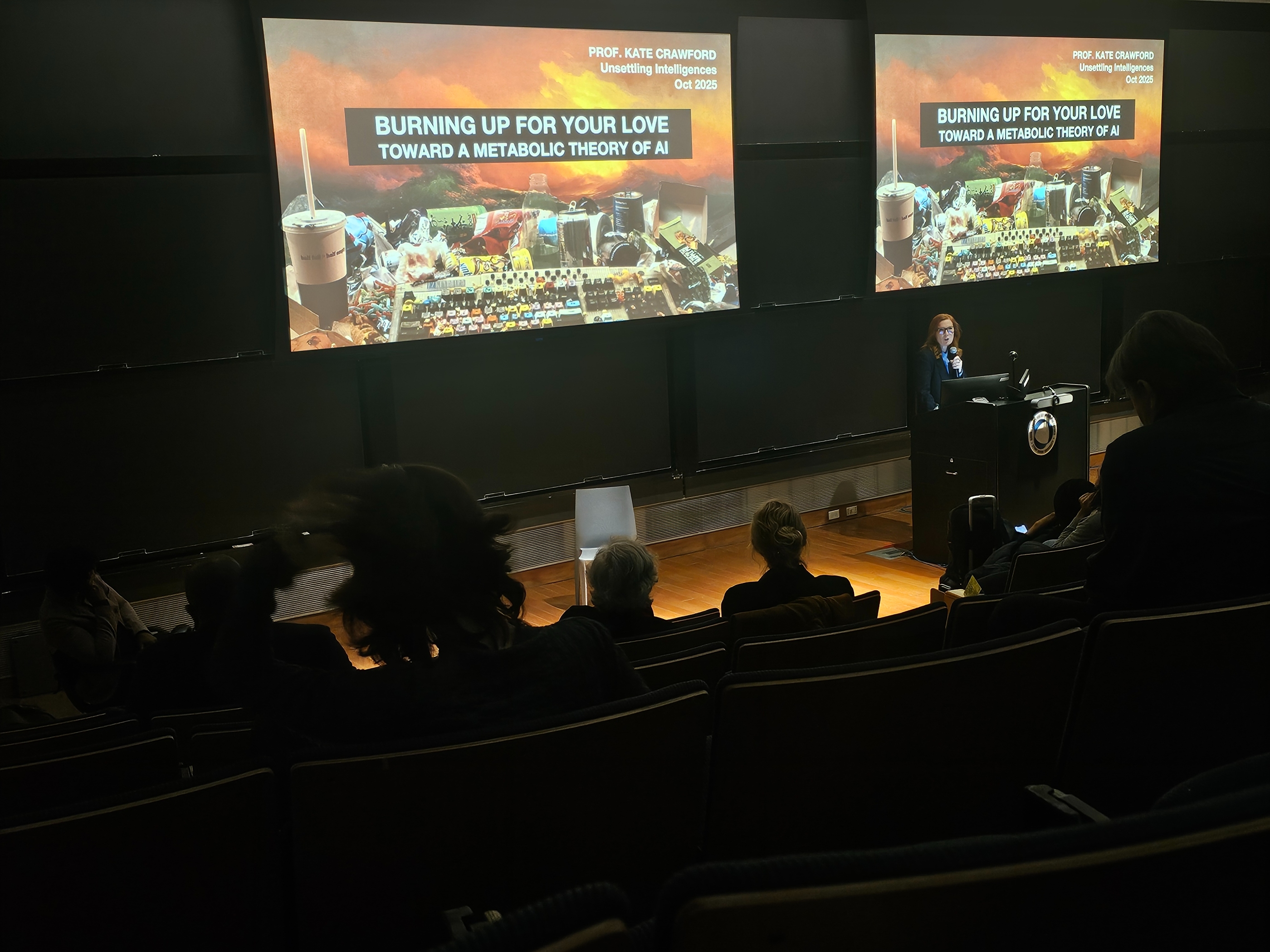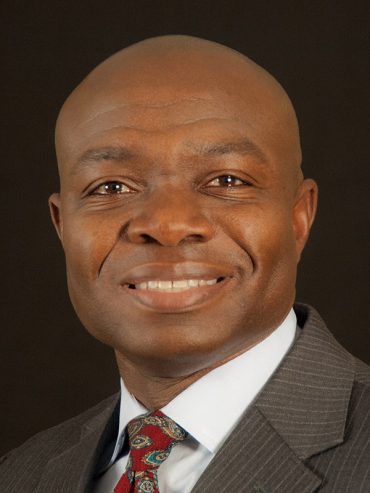For more than a decade, WolfieTank has celebrated innovation and bold thinking at Stony Brook University.
Modeled after the television show Shark Tank, the annual pitch competition invites students to present their entrepreneurial ideas to a panel of industry judges. Now in its 11th year, the event has grown into a showcase of creativity and collaboration across disciplines.
“It feels successful to me every year because we get to empower entrepreneurs and get them to really develop and showcase their work,” said David Ecker, director of iCREATE and the founder of WolfieTank. “We need to have a way of showcasing their entrepreneurial ideas, and this is a way.”
